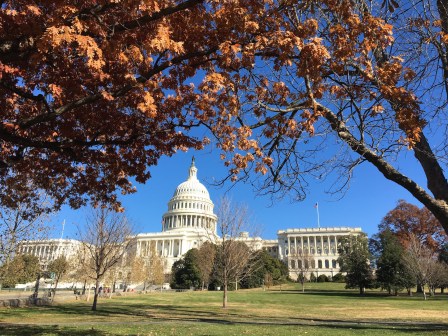Editor’s note: Story has been updated with a statement from Sylvia Mathews Burwell.
After a two-week-plus gridlock in Congress, the government shutdown has come to an end and a default has been averted after the House passed a Senate-brokered bill 285 to 144.
The legislation will fund the government through Jan. 15 and lift the debt ceiling through Feb. 7.
The Senate voted earlier in the day 81-18 in favor of the bill. The compromise, bartered between Senate Majority Leader Harry Reid (D-Nev.) and Minority Leader Mitch McConnell, (R-Ky.), spared any harm to the Affordable Care Act, which was the fulcrum of the conflict.
“Now that the bill has passed the United States Senate and the House of Representatives, the president plans to sign it tonight and employees should expect to return to work in the morning,” Sylvia Mathews Burwell, director of the Office of Management and Budget, said in a statement. “Employees should be checking the news and OPM’s website for further updates.”
Republicans took a major blow in popular opinion during the shutdown, though according to a USA Today poll 74 percent of registered voters would like to see most members of Congress defeated in 2014.
Congress’ approval rating dipped as low as 5 percent during the shutdown. Still, some members of the Tea Party faction supported continuing the shutdown and letting the United States default on its bills.
During the shutdown, more than 67,000,000 hours of labor were lost between the 800,000 furloughed federal employees. Nearly $3 billion in unpaid salaries to federal employees have piled up.
Every hour, the government shutdown cost the taxpayers more than $6.6 million. In the 15 days since the shutdown, the economy has lost $2.95 billion, according to the National Priorities Project.
Reid called the end of the shutdown a “historic bipartisan agreement.”
Colby Hochmuth and Scott Maucione collaborated on this report.




